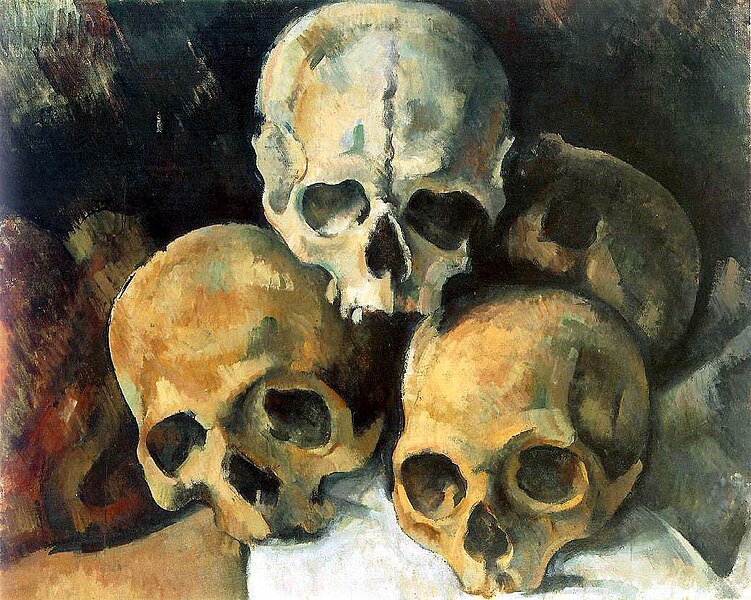I've been thinking about youth - the energy, confusion, struggles, and amazing vision that can come with being young, specifically that strange period from roughly 18 to 30. I seem to have a number of people in my life right now who are in this age range, and I am constantly amazed, in awe and sometimes frustrated by them.
Full disclosure, I am 47, closing in on 48 (this week!). I sometimes feel like a dinosaur, though my older friends would, of course, dispute that fact. I have entered the stage of life when you fall effortlessly into lengthy conversations that begin with the words "Remember when." The impulse to reminisce seems very powerful at this point in my life. I engage in a lot of involuntary grunting and other vocalizations when I get up off the couch or out of the car. I'm in good shape, and yet I seem to have a variety of random injuries and odd health quirks that were never there before. Most of the time, in my head, I don't feel so very different from who I was when I was younger. Then something will happen that pulls me up short and reminds me how very different the view looks from here, and how very different the pilot of this ship called my body is now. The agitated struggle feels calmer, the reality of mortality more inevitable, the truth of physical limitations undeniable, the need for approval less insatiable, the warm glow of small joys burnished brighter by time.
Recently, there have been a spate of articles about various generations - Generation X, the Boomers, the Millenials, and other labels I haven't fully retained because I've come to the conclusion that they are just that - arbitrary labels. The sad thing about attempting to draw these careful generational distinctions is that it seems to be giving in to the worst of our human tendency to define, and segregate, ourselves by our differences. These generational articles all seem to amount to mud slinging from one generation to another.
I see it in myself, the way I sometimes get unreasonably annoyed by a new fashion trend (cutesy animal hats on adults, for example), or inestimably frustrated by a particular attitude of someone younger than me, or a younger person's failure to grasp or understand some part of who I am. It is the nature of youth to push, to question, to demand, to assume, to point out what it sees as the failings of the older generation, and to have knowledge gaps that prevent a full understanding of that generation. On the other hand, it is the nature of age to see youth from the outside and find fault in what is essentially a work in progress. The hard won knowledge and experience that comes from sticking around life long enough to reach middle age or old age is something we demand acknowledgment for, and burn to share. Meanwhile, the younger generation demands the chance to prove its strengths and talents, and craves the ability to strike out on its own and define itself separate from the influence of the elders, at the very moment when those elders most crave recognition and acknowledgment of their acquired experience.
How can these two sides ever come together? Really, truth be told, it's more than two sides. What we're talking about is a prism, a diamond, its many faces made up of the many different perspectives that come not only from different time periods but different circumstances and personalities. When we are able to let go of the us vs. them attitude and reach out across the gaps of years to connect with people from a wide range of ages, our lives can be so much richer. I envy and celebrate the incredible energy and optimism and can-do attitude of youth. I honor and rejoice in the depth of knowledge and the courage and wisdom only evident in seniors. I cannot help laughing and marveling at the special perspectives of children. My world is made better by the connections I have with people from every age.
Is there a God? What is the meaning of life? Why is the sky blue? How come all my socks are lonely? Everyone needs a good question to chew on.
Sunday, January 26, 2014
Saturday, November 23, 2013
A Case for Halloween
 We may be coming up on Thanksgiving, but I've got Halloween on my mind. As a teacher, Halloween, like Christmas, is a holiday where I must tread with care. There are usually a few students whose parents have a real discomfort over Halloween, just as there are those who have issues with Christmas, generally due to religious reasons. I respect religious differences and therefore I try to walk a careful line around such holidays.
We may be coming up on Thanksgiving, but I've got Halloween on my mind. As a teacher, Halloween, like Christmas, is a holiday where I must tread with care. There are usually a few students whose parents have a real discomfort over Halloween, just as there are those who have issues with Christmas, generally due to religious reasons. I respect religious differences and therefore I try to walk a careful line around such holidays.But this year, I found myself thinking about this reality, about why so many Christians take issue with Halloween. Actually, it's not just Christians. Many adults seem squeamish at the whole fascination with the evil and violent images that Halloween conjures.
Understandable feelings. Reveling in the dark side of existence can be bad for the soul. So, there may be a line that shouldn't be crossed. However, I would submit that acknowledging the darkness, and the power behind fear and violence and death, does not deny God or life. Even for those who believe in a life after death, death is a reality. The suffering, loss and grief of death are still real aspects of human life. Even Christ experienced them. True faith should not only be able to acknowledge death, and darkness and evil and fear, it should be able to incorporate them into a fuller, more complex understanding of existence. Perhaps by facing the creatures born in the darkest corners of our imaginations, and embodying those fears, we actually strengthen our souls' ability to endure and survive the frightening and dark parts of human existence.
At least, those are my thoughts on this cold and dark November evening.
Friday, October 11, 2013
At Ease In Your Life

We live in a world that pushes us to fill every second and want things we don't need, a world that insists on the urgency of its demands on our time. We are saturated with messages about what we should worry over and fear and desire. It can be hard to step back and find balance. To be, as the Tao puts it, "at ease in your life."
I recently read an article about some research linking "grit" to success. There's a short survey you can take that's apparently an effective predictor of later success. Several of the questions seemed oriented to the kind of over-ambitious, over-driven, achievement-oriented personality that is, to be honest, the antithesis of the Tao. I found myself wondering, "Is it possible to have grit without being consumed by ambition and desire?"
Perhaps the greater question is "How does this research define success?" Material possessions? Career accomplishments? Notoriety? Sufficient laughter and love and a sense of inner fulfillment? A roof over your head and food to eat? Making the world a better place? After all, "success" and "happiness" aren't necessarily synonymous.
When I was a kid, I used to love the board game Careers. It was the 1970's answer to Monopoly, a game in which each player defined success on his or her own terms. You collected happiness points, fame points and money. To win, you had to reach a certain total (I think it was 60), but you could make the total out of any combination of fame, money or happiness. Different career paths would lead to different kinds of points. Success was formulaic and achievable, which of course is not always the case in real life, but there was something so wonderful about a game that acknowledged this life truth: There are many paths to success and many ways to define success. In the end, it's a question of whether you are "at ease in your life," in the choices you've made, in your definition of success and your progress towards your goals.
Subscribe to:
Posts (Atom)
